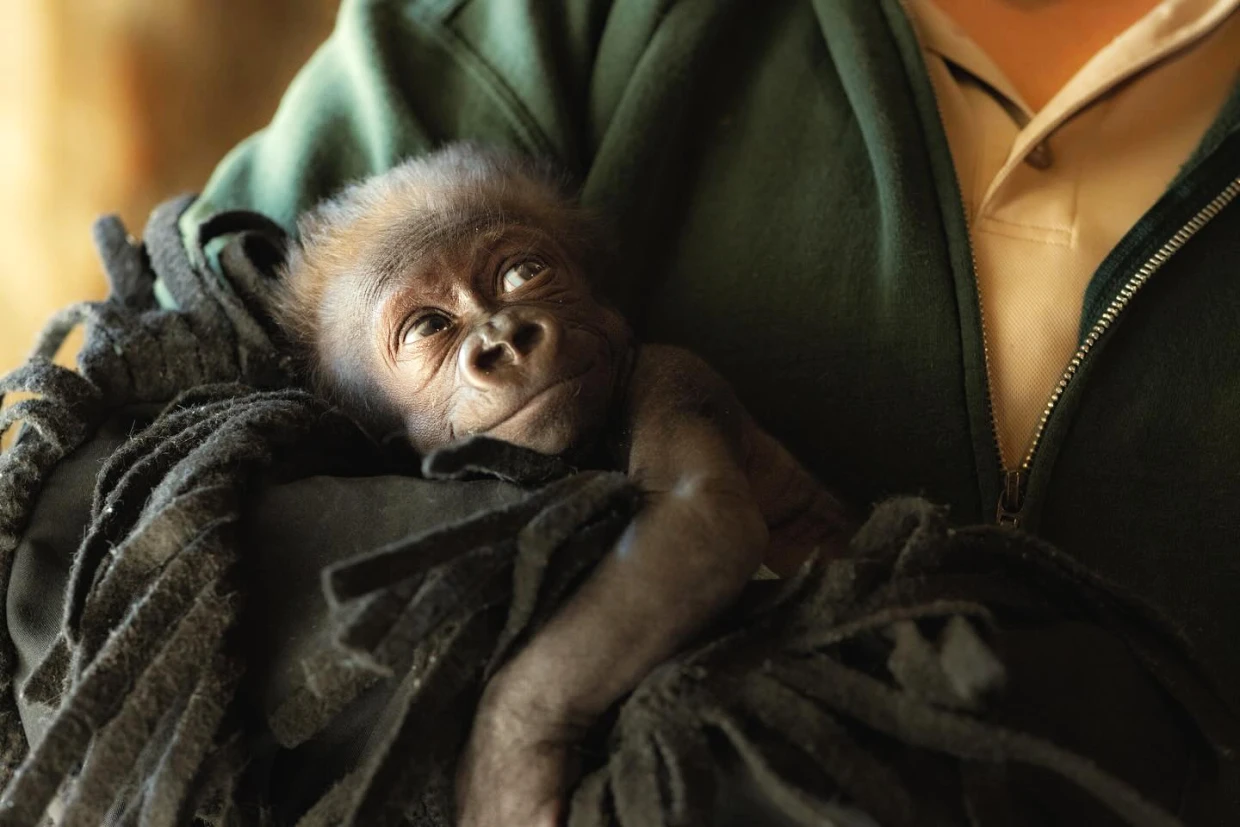Despite the animal mother’s full recovery, zoo officials have noted her lack of interest in her newborn offspring.
Last month, a baby gorilla was delivered prematurely via emergency cesarean section at the Fort Worth Zoo due to “life-threatening complications” faced by her mother, the zoo announced.
Weighing just 3 pounds and 1 ounce, the baby, named Jameela (meaning “beautiful” in Swahili), arrived four to six weeks early on January 5th, according to updates shared by the Fort Worth Zoo on Facebook. Despite her early arrival, her mother, Sekani, has since made a full recovery.
The zoo revealed that Sekani exhibited signs of preeclampsia, a serious blood pressure condition common in both humans and primates during pregnancy.
After consulting with human medical experts, including an obstetrician and neonatologist, the zoo’s staff and veterinarians determined that an emergency C-section would offer the best chance of survival for both Jameela and Sekani.
“Primates share many biological similarities with humans, making collaboration with human medical experts invaluable,” the zoo stated on Facebook.
Dr. Jamie Walker Erwin, a board-certified obstetrician and gynecologist who has long collaborated with the zoo, along with Dr. Robert Ursprung, a neonatologist, and Dennis Occkiogrosso, a certified registered nurse anesthetist, among others, assisted in the successful delivery and care of Jameela.
Reflecting on the experience, Dr. Erwin expressed her gratitude for being part of such a momentous event, emphasizing the remarkable parallels between Sekani’s anatomy and that of her human patients.
Jameela’s birth marks a significant milestone for the Fort Worth Zoo, being the third gorilla born in its 115-year history and the first delivered via C-section. Jameela is the fourth offspring of 33-year-old Sekani.
Before the emergency procedure, Sekani’s pregnancy had been progressing normally, with an anticipated due date in early to mid-February.
On January 3rd, zookeepers noticed a distinct change in Sekani’s demeanor, observing her moving with an unusual slowness and displaying signs of discomfort akin to a headache. This prompted the diagnosis of preeclampsia, introducing a challenging turn of events for both mother and newborn.
With Jameela’s early arrival, the urgency for immediate and extensive medical intervention became paramount, encompassing resuscitative efforts, stabilization, respiratory support, radiographic evaluations, and ongoing vigilant care due to her premature birth.
Despite the hurdles, Jameela has displayed remarkable resilience, defying the odds by already reaching a weight of 5 pounds. This noteworthy progress stands as a testament to the tireless dedication of the devoted team at the Fort Worth Zoo, who tirelessly provide round-the-clock care and nourishment for the young gorilla.
Yet, amidst Jameela’s strides, Sekani’s maternal instincts have yet to fully emerge, despite numerous attempts to foster a bond between mother and newborn.
“Despite our relentless efforts to encourage maternal care from Sekani, she has shown limited interest in caring for Jameela,” the zoo shared.
While the precise reasons behind Sekani’s behavior remain elusive, experts posit that she may have missed the hormonal cues typically associated with natural births, contributing to her current disengagement.
Following two weeks of unsuccessful bonding endeavors, zookeepers have redirected their focus to Gracie, a 24-year-old gorilla, as a potential surrogate mother for Jameela.
Michael Fouraker, the Fort Worth Zoo’s executive director, commended the unwavering commitment of the staff to Jameela’s well-being, expressing hope for her continued growth and development under the nurturing care of a surrogate mother.
“Watching our team’s steadfast dedication to Jameela and her journey towards finding a surrogate mother has been profoundly inspiring,” Fouraker remarked. “We remain optimistic for Jameela’s continued progress and flourishing.”
